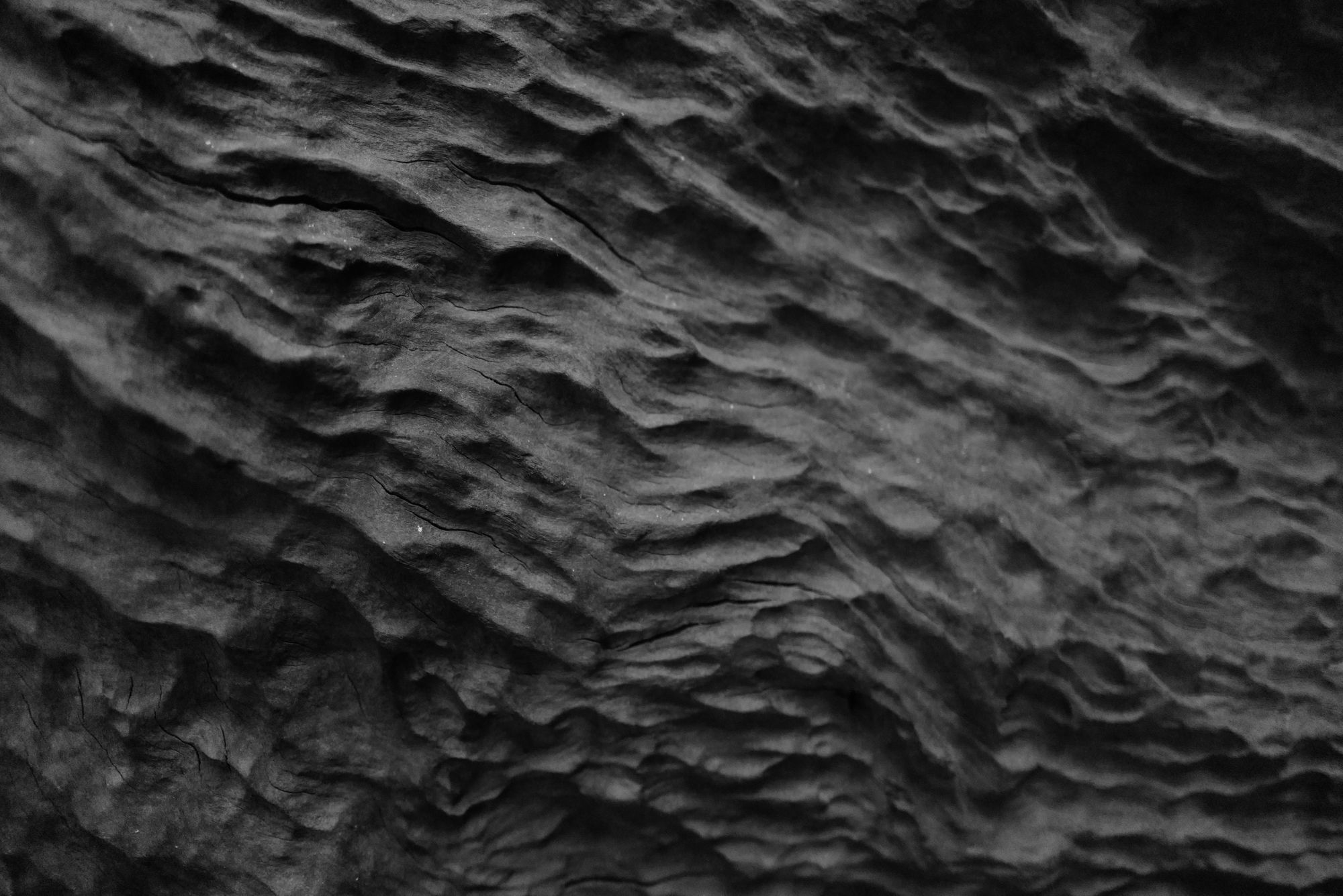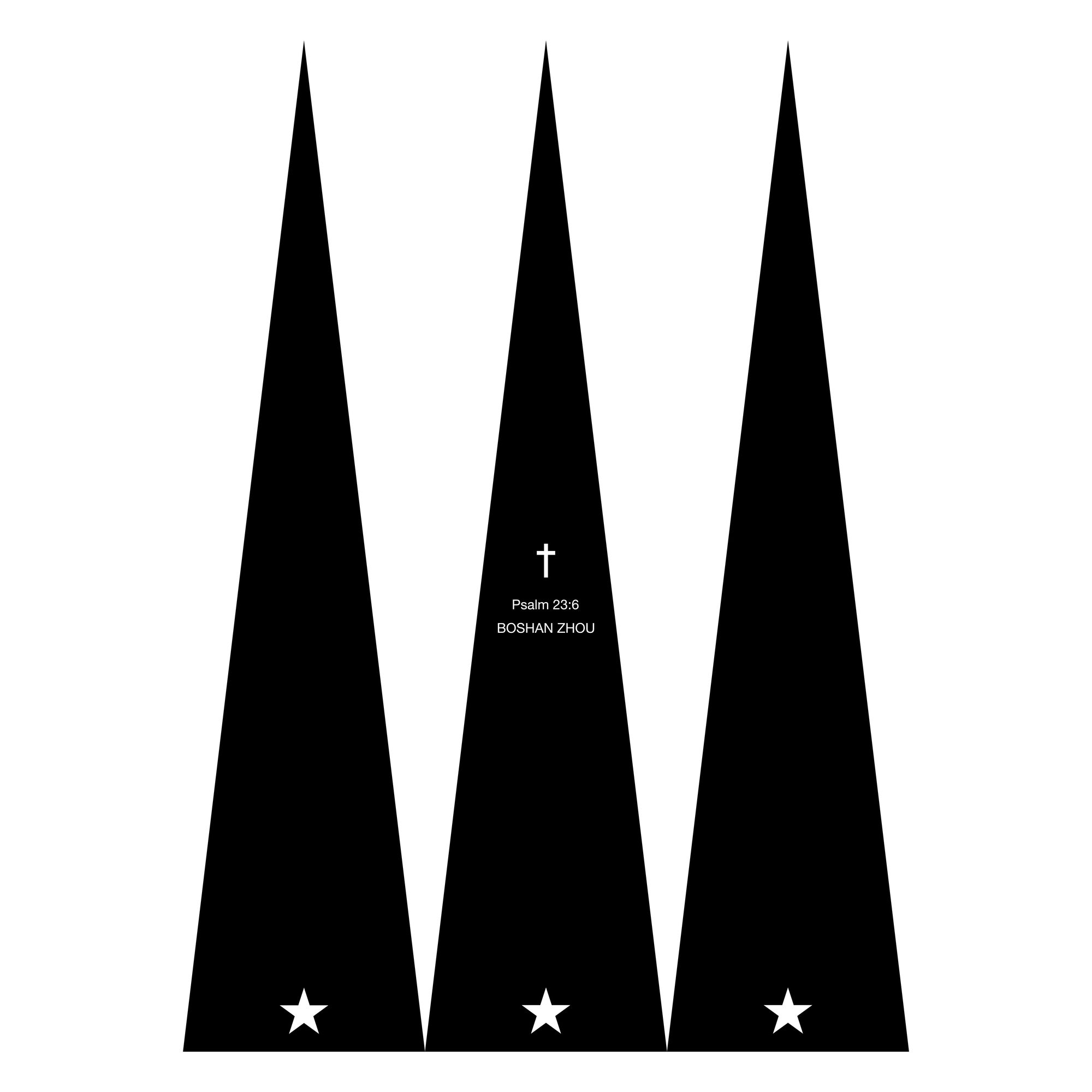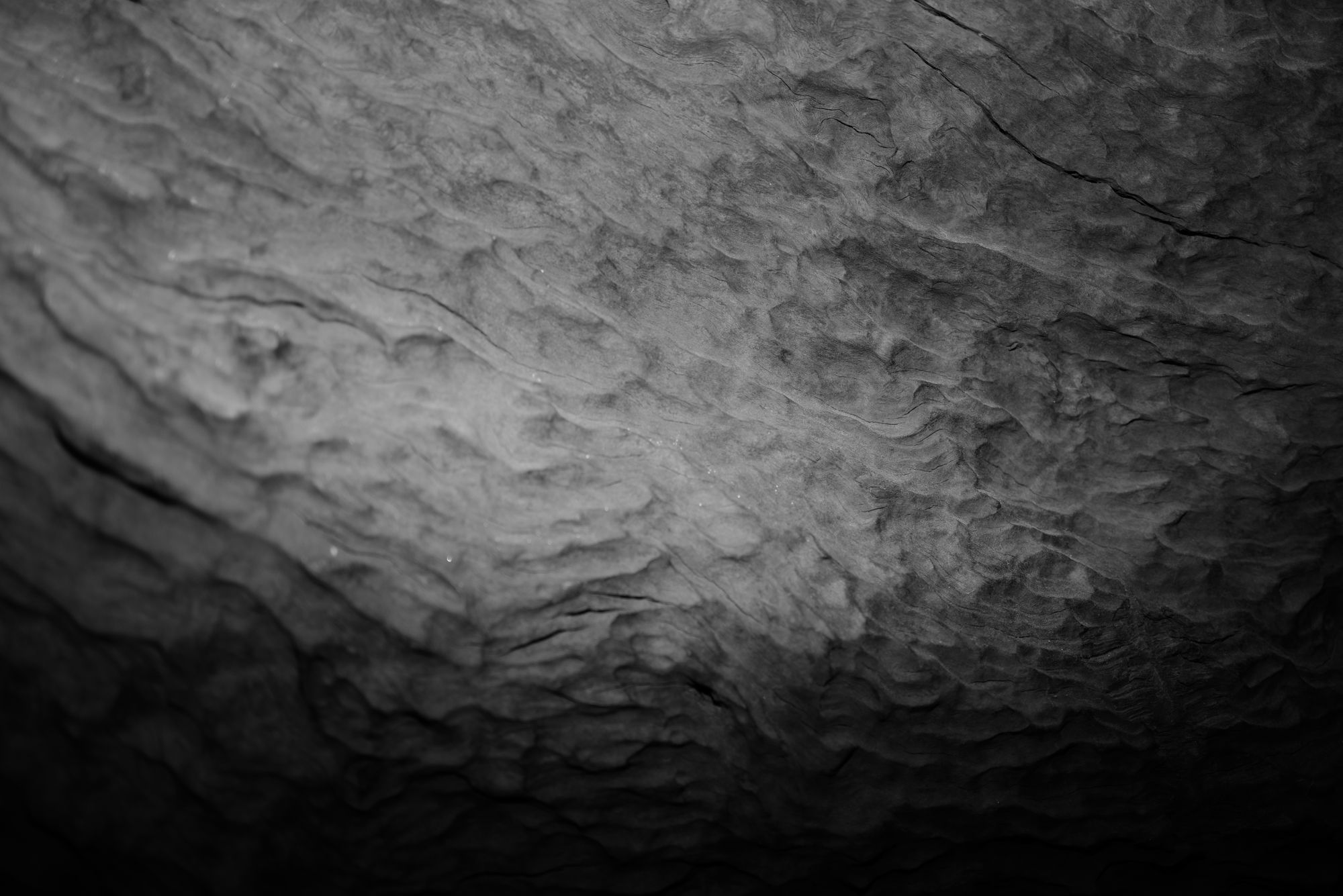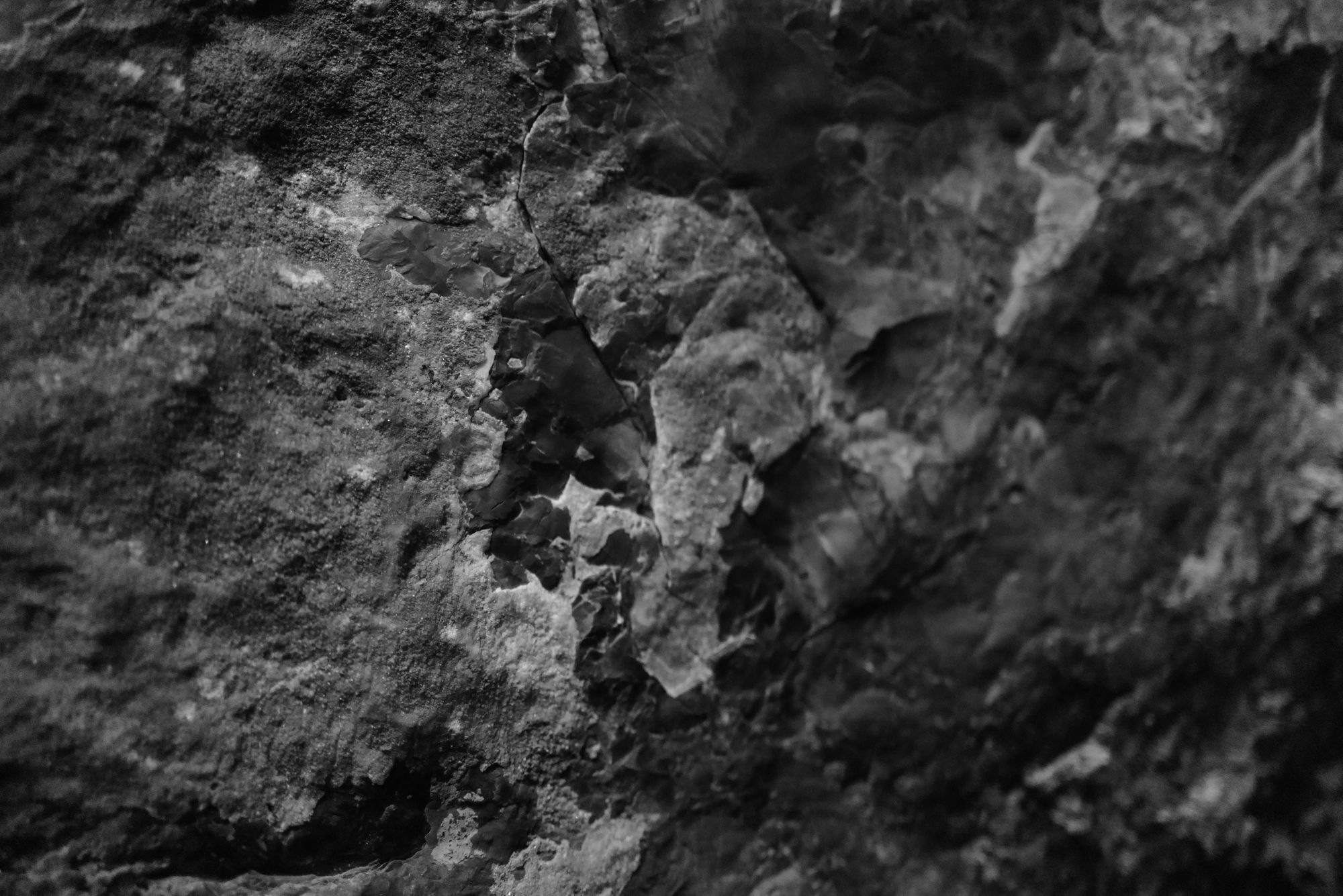标题:Genesis 47
年份:2020
尺寸:47.28 x 70.85 cm
Title: Genesis 47
Year: 2020
Dimension: 47.28 x 70.85 cm

「Genesis」系列作品,一共五十幅,对应《圣经》创世纪的五十章。
The "Genesis" series consists of 50 works, corresponding to the 50 chapters of the Bible's Genesis.
47 / 50.
47:1 约瑟进去禀告法老,说:“我的父亲和兄弟们,带着他们的牛羊和他们所有的一切,都从迦南地来了,现在就在歌珊地。”47:2 约瑟从他所有的兄弟当中,挑选了五个人,把他们带到法老面前。47:3 法老问约瑟的兄弟们说:“你们是作甚么的?”他们回答法老:“仆人们是牧羊人,我们和我们的祖先都是一样。”47:4 他们又对法老说:“我们来是要在这地寄居,因为迦南地的饥荒严重,你仆人们的羊群没有草吃,所以,现在求你容许你仆人住在歌珊地。”47:5 法老对约瑟说:“你的父亲和兄弟们到你这里来了;47:6 埃及地都在你面前,你只管叫你的父亲和兄弟们住在这地最好的地方,他们可以住在歌珊地。你如果知道他们中间有能干的人,可以派他们看管我的牲畜。”47:7 约瑟把他父亲雅各带到法老面前,雅各就给法老祝福。47:8 法老问雅各:“你有多大年纪了?”47:9 雅各回答法老:“我寄居在世的年日是一百三十岁。我一生的年日又少又苦,不及我祖先寄居在世的年日。”47:10 雅各又给法老祝福,然后离开法老出去了。47:11 约瑟照着法老的吩咐安置他的父亲和兄弟们,把兰塞地,就是埃及地最好的地方,给他们作产业。47:12 约瑟照着孩子的数目,用粮食供养他的父亲、兄弟们,以及父亲的家人。47:13 那时,遍地都没有粮食,因为饥荒非常严重。埃及地和迦南地的人,因为饥荒的缘故都饿昏了。47:14 约瑟收集了埃及地和迦南地所有的银子,就是众人买粮的银子;约瑟就把那些银子交到法老的王宫去。47:15 埃及地和迦南地的银子都用尽了,埃及众人就来到约瑟那里,说:“银子已用完了。求你给我们粮食吧,我们为甚么要饿死在你面前呢?”47:16 约瑟回答:“如果银子用完了,可以把你们的牲畜给我,我就把粮食给你们,交换你们的牲畜。”47:17 于是,他们把牲畜带到约瑟那里,约瑟就把粮食给他们,交换他们的马匹、羊群、牛群和驴。那一年,约瑟就用粮食交换他们所有的牲畜,来养活他们。47:18 那一年过后,第二年他们又来到约瑟那里,对他说:“我们不向我主隐瞒,我们的银子都用尽了,牲畜也归了我主;在我主面前,除了我们的身体和田地以外,甚么也没有剩下了。47:19 为甚么我们和我们的田地要在你面前消灭呢?求你用粮食买我们和我们的田地,我们和田地就必为法老效劳了。又求你给我们谷种,使我们可以活着,不至死亡,田地也不至荒芜。”47:20 于是,约瑟为法老买了埃及所有的田地,因为埃及人遭遇了严重的饥荒,各人都卖了自己的田地。这样,那地就都归法老所有。47:21 至于人民,约瑟使他们作奴仆(按照《马索拉文本》,“使他们作奴仆”作“把他们迁到城市里去”;现参照其他抄本及古译本翻译),从埃及境内的一端,直到另一端。47:22 只有祭司的田地,约瑟没有买,因为祭司有从法老所得的粮饷;他们可以吃法老所给的粮饷,所以没有卖自己的田地。47:23 约瑟对人民说:“看哪,我今日为法老买了你们和你们的田地。这里有谷种给你们,你们可以种地。47:24 到了收割的时候,你们要把五分之一给法老,其余四分可以归你们自己,作田里的种子,又作你们以及你们家人和孩子的食物。”47:25 他们说:“你救了我们;愿我们在我主面前得蒙喜悦,我们就作法老的奴仆。”47:26 于是,约瑟为埃及的田地立了一个法例,直到今日还有效,就是五分之一归给法老;只有祭司的田地不归给法老。47:27 以色列人住在埃及国的歌珊地,他们在那里置业繁衍,人数非常众多。47:28 雅各在埃及地住了十七年;他一生的寿数是一百四十七岁。47:29 以色列的死期快到了,就把他儿子约瑟叫了来,对他说:“如果我在你面前蒙你喜悦,请你把手放在我的大腿底下起誓,要以慈爱和诚实对待我,不要把我埋葬在埃及。47:30 我与我的祖先同睡的时候,你要把我从埃及带出去,埋葬在他们的墓地里。”约瑟说:“我必照着你的话去作。”47:31 雅各说:“你要向我起誓。”约瑟就向他起了誓,于是以色列靠着床头(“靠着床头”有古译本作“倚着杖头”〔参来11:21〕)敬拜 神。
创世记 47
47:1 Joseph went and told Pharaoh, “My father and brothers, with their flocks and herds and everything they own, have come from the land of Canaan and are now in Goshen.”47:2 He chose five of his brothers and presented them before Pharaoh.47:3 Pharaoh asked the brothers, “What is your occupation?” “Your servants are shepherds,” they replied to Pharaoh, “just as our fathers were.”47:4 They also said to him, “We have come to live here for a while, because the famine is severe in Canaan and your servants’ flocks have no pasture. So now, please let your servants settle in Goshen.”47:5 Pharaoh said to Joseph, “Your father and your brothers have come to you,47:6 and the land of Egypt is before you; settle your father and your brothers in the best part of the land. Let them live in Goshen. And if you know of any among them with special ability, put them in charge of my own livestock.”47:7 Then Joseph brought his father Jacob in and presented him before Pharaoh. After Jacob blessed(Or greeted) Pharaoh,47:8 Pharaoh asked him, “How old are you?”47:9 And Jacob said to Pharaoh, “The years of my pilgrimage are a hundred and thirty. My years have been few and difficult, and they do not equal the years of the pilgrimage of my fathers.”47:10 Then Jacob blessed(Or said farewell to) Pharaoh and went out from his presence.47:11 So Joseph settled his father and his brothers in Egypt and gave them property in the best part of the land, the district of Rameses, as Pharaoh directed.47:12 Joseph also provided his father and his brothers and all his father’s household with food, according to the number of their children.47:13 There was no food, however, in the whole region because the famine was severe; both Egypt and Canaan wasted away because of the famine.47:14 Joseph collected all the money that was to be found in Egypt and Canaan in payment for the grain they were buying, and he brought it to Pharaoh’s palace.47:15 When the money of the people of Egypt and Canaan was gone, all Egypt came to Joseph and said, “Give us food. Why should we die before your eyes? Our money is all gone.”47:16 “Then bring your livestock,” said Joseph. “I will sell you food in exchange for your livestock, since your money is gone.”47:17 So they brought their livestock to Joseph, and he gave them food in exchange for their horses, their sheep and goats, their cattle and donkeys. And he brought them through that year with food in exchange for all their livestock.47:18 When that year was over, they came to him the following year and said, “We cannot hide from our lord the fact that since our money is gone and our livestock belongs to you, there is nothing left for our lord except our bodies and our land.47:19 Why should we perish before your eyes—we and our land as well? Buy us and our land in exchange for food, and we with our land will be in bondage to Pharaoh. Give us seed so that we may live and not die, and that the land may not become desolate.”47:20 So Joseph bought all the land in Egypt for Pharaoh. The Egyptians, one and all, sold their fields, because the famine was too severe for them. The land became Pharaoh’s,47:21 and Joseph reduced the people to servitude,(Samaritan Pentateuch and Septuagint (see also Vulgate); Masoretic Text and he moved the people into the cities) from one end of Egypt to the other.47:22 However, he did not buy the land of the priests, because they received a regular allotment from Pharaoh and had food enough from the allotment Pharaoh gave them. That is why they did not sell their land.47:23 Joseph said to the people, “Now that I have bought you and your land today for Pharaoh, here is seed for you so you can plant the ground.47:24 But when the crop comes in, give a fifth of it to Pharaoh. The other four-fifths you may keep as seed for the fields and as food for yourselves and your households and your children.”47:25 “You have saved our lives,” they said. “May we find favor in the eyes of our lord; we will be in bondage to Pharaoh.”47:26 So Joseph established it as a law concerning land in Egypt—still in force today—that a fifth of the produce belongs to Pharaoh. It was only the land of the priests that did not become Pharaoh’s.47:27 Now the Israelites settled in Egypt in the region of Goshen. They acquired property there and were fruitful and increased greatly in number.47:28 Jacob lived in Egypt seventeen years, and the years of his life were a hundred and forty-seven.47:29 When the time drew near for Israel to die, he called for his son Joseph and said to him, “If I have found favor in your eyes, put your hand under my thigh and promise that you will show me kindness and faithfulness. Do not bury me in Egypt,47:30 but when I rest with my fathers, carry me out of Egypt and bury me where they are buried.” “I will do as you say,” he said.47:31 “Swear to me,” he said. Then Joseph swore to him, and Israel worshiped as he leaned on the top of his staff.(Or Israel bowed down at the head of his bed)
Genesis 47
在科学可以近乎解释一切的这个时代,我们已经倾向于习惯这个世界发生的一切和周围的一切,无论它有多不可思议,甚至习以为常到不再思考它的不可思议性。
宇宙为何以及如何诞生?为何宇宙大爆炸有一个从无到有的“开始”?为何生命会从“无”诞生到“有”?为何会有复杂、精密的生命的存在?为什么人体内的 DNA 和细胞像微观世界一样复杂而精确,却以高度有序的方式完成其工作,就像被设计和编程的另一个宇宙一样?
无论是哈雷彗星的椭圆运行轨道,笛卡尔浪漫的心形函数,人体曼妙的黄金分割,天空飘零的六边雪花,甚至一片落叶飘落,都是一段美妙的函数方程。大如宇宙,小如雪花,都能在这些公式之中看到神性的秩序。
爆炸带来的皆是毁灭。最初,什么都没有,“大爆炸”却产生了时间、物质和空间,没有逐步的生成,没有过渡的形态,只是一种二元翻转,从“不存在”到“存在”。宇宙复杂且广阔,却能用高度有序的数学公式来描述,诞生了秩序甚至生命。仅凭这一点就令人难以置信,足以使人们终生寻求真理。
“存在可以从不存在而来”的这种“自然发生论”观念的证据何在?怎么从非生命体获得生命?为何我们还是不知道如何切实地从死物质创造出生命,却坦然地默认生命可以从非生命诞生?
宇宙背后的真理如此令人惊叹又神秘,生命是如此不可思议,我们却如此地习以为常,甚至不再感叹这一切的神奇。
「自从造天地以来,神的永能和神性是明明可知的,虽是眼不能见,但藉着所造之物就可以晓得,叫人无可推诿。」罗马书 1:20
“科学的尽头是神学。” 我认为,尽管科学有其局限性,而神学提供了答案,但神学并不是要解释科学的不足,仅靠科学也无法触及神学的核心。然而,科学和神学并非对立面,也并不妨碍我们在探索求知的路上保留着一颗敬畏之心。
「诸天述说神的荣耀,穹苍传扬祂的手段。」诗篇 19:1
大自然的壮丽景色,很容易让人心生敬畏,但是我发现即便日常最被人忽视的细微之景,也是“穹苍”的一部分。从“大”可以很自然地想到“大”,但如果从“小”也能看到“大”,“大”则更显荣耀。
在这个系列,我不是在试图回答上述问题或者阐述我对上述问题的世界观和立场,我只是在一些我们习以为常甚至忽略的细微场景中看到了“创造者”留下的“痕迹”和“威严”。
因此,我制定了一条规则:试图通过被忽视的日常细微之景,从敬畏和好奇中看到“大”与“小”之间的关系,以小尺度为窗口,探索和思考宇宙,生命,永恒与创造之间的关系。
In an era where science can nearly explain everything, we have become accustomed to everything that happens in this world and everything around us, no matter how incredible it is, or even accustomed to stop thinking about its incredibility.
Why and how did the universe come from? Why does the universe's big bang have a "start" from nothing? Why is life born from "nothing" to "life"? Why is there complex, sophisticated creatures? Why is the DNA and cells in our body as complex and precise as a microcosm, but complete its work in a highly orderly manner, just like another universe designed and programmed?
Whether it is the elliptical orbit of Comet Halley, the romantic heart-shaped function of Descartes, the graceful golden section of the human body, the Six-sided snowflake falling from the sky, or even a leaf falling, all are wonderful function equations. As big as the universe and as small as snowflakes, divine order can be seen in these formulas.
The explosion brought about destruction. Originally, there was nothing, but the "Big Bang" produced time, matter, and space. There was no gradual development, no transitional forms, but a binary flip, from "non-existence" to "existence." The universe is complex and vast, but it can be described by highly ordered mathematical formulas, gave birth to order and even life. This alone is unbelievable enough to let people explore the truth throughout their lives.
What is the evidence for the "abiogenesis", which is "something can come from nothing"? How to get life from non-life? Why do we still not know how to actually create life from dead stuff, but frankly assume that life can be born from non-life?
The truth behind the universe is so incredible and mysterious, life is so incredible, we are so accustomed to it, we are no longer lamenting the incredibility of all this.
"For since the creation of the world God’s invisible qualities—his eternal power and divine nature—have been clearly seen, being understood from what has been made, so that people are without excuse." Romans 1:20
"The end of science is theology." I believe that although science has its limitations and theology provides the answer, theology is not to explain the deficiency of science, and science alone cannot reach the core of theology. However, science and theology are not opposites, and they do not prevent us from remaining awed on the road to exploring knowledge.
"The heavens declare the glory of God; the skies proclaim the work of his hands." Psalm 19:1
The magnificent scenery of nature can easily make people awe-inspiring, but I find that even the most slight sceneries that are most overlooked in daily life are also part of the "skies". You can think of "big" naturally from "big", but if you can also see "big" from "small", "big" is even more glorious.
In this series, I am not trying to answer the above questions or to express my views and positions on the above questions. I just saw the "traces" and "majesty" left by the "creator" in some slight scenes that we are accustomed to and even ignore.
Therefore, I created a rule: trying to see "big" from "small" - with awe and curiosity, through daily neglected slight scenes, with “small scale” as the window, to explore and think about the relationship between the universe, life, eternity and creation.
- Boshan Zhou
版权所有,未经许可,请勿擅自使用此图,侵权必究。
All rights reserved; those responsible for unauthorized usage and reproduction will be prosecuted.
©️ Boshan Zhou.


